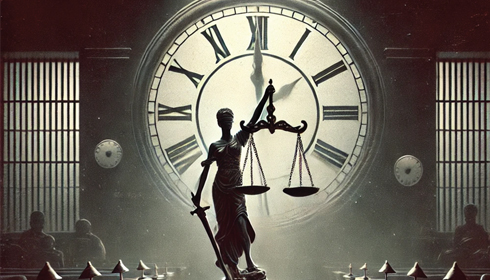
Supreme Court calls attention to a "threat culture" in medical colleges and orders a stop to civic volunteer deployment with immediate effect
The Supreme Court of India expressed grave concerns about the situation of student elections and the growing 'threat culture' in West Bengal medical colleges in a major hearing set for October 15, 2024. Chief Justice D.Y. Chandrachud presided over the hearing, which concentrated on security issues at medical facilities, including the notorious incident at RG Kar Medical College Hospital as well as the continuous postponement of student body elections.
According to a submission in front of the Court, starting in 2022, medical institutions have postponed their student body elections, raising questions about the involvement of non-elected, nominated individuals working on behalf of student groups. Senior attorney Indira Jaising raised this matter first on behalf of junior doctors. She claimed that the absence of elections has led to a "threat culture," notably on medical campuses, where intimidation and violence are now somewhat normal.
Chief Justice Chandrachud clarified that the Court lacked the authority to issue immediate instructions calling for a resuming of student polls. Particularly following a fifth CBI status report on the matter, the Court was more keen on looking at the broader general issue of campus security.
The West Bengal government claimed in its affidavit to have allocated ₹123 crore for security enhancement at 28 medical colleges. The government asserts that it has initiated approximately three hundred security-related projects. But well-known attorney Karuna Nundy, who represents the top doctors, contested this assertion. She said that just some of the work had been completed, and field tests at some institutions showed inadequate security measures.
Nundy also argued for a more participatory approach to hospital security, urging the Court to set committees including government officials as well as junior and senior doctors. Chief Justice Chandrachud noted the Court would seek further clarification on the matter and emphasised the need for accurate awareness of the ongoing security projects.
The hearing also covered the important topic of constructing a centralised digital bed booking and referral system in hospitals. Advocate Jaising pointed out that patients, who were often confused about bed availability or if the hospital could provide the required treatment, were greatly worried about the absence of a consistent system. This, in turn, fueled animosity towards doctors and other healthcare professionals, thereby intensifying security issues.
Chief Justice Chandrachud answered by saying the state government has assured the Court these systems will be fully operational by November 2024.
Given the RG Kar incident, the Court also investigated the controversial use of local volunteers for hospital security. The most recent CBI report revealed that the main accused, Sanjay Roy, a civic volunteer, had past grievances against him, which begged questions regarding the procedures for selecting and verifying these volunteers.
Under Chief Justice Chandrachud, the court has temporarily barred the use of civic volunteers in hospitals and colleges all throughout the state until the next hearing. Noting a lack of openness in their recruiting policies and responsibility, the Court also forbade their deployment at police stations. Within three weeks, the state government must turn in an affidavit detailing the processes of verifying civic volunteers.
This action follows the discovery that the "Raatrir Sathai" (night companion) program contains around 1,500 municipal volunteers appointed from West Bengal. The Supreme Court's injunction prohibits the use of any of these volunteers until further notice.
The Supreme Court's ruling to stop municipal volunteer deployment begs serious questions concerning campus and hospital security in West Bengal. The extended suspension of student elections and the resulting power vacuum have sparked concerns about unfettered violence and intimidation inside medical institutions.
The focus on thorough verification procedures and more openness in hospital security initiatives has put pressure on the government to produce real results as the state waits for the ultimate judgement. The Court's insistence on including medical experts in security committees highlights the need for cooperative solutions to protect the safety of medical workers.
Now, this story has become central in the bigger debate on institutional security and governance in West Bengal's public healthcare system. The following session is supposed to delve deeper into the security policies of the government and the role civic volunteers play.
Key terms are